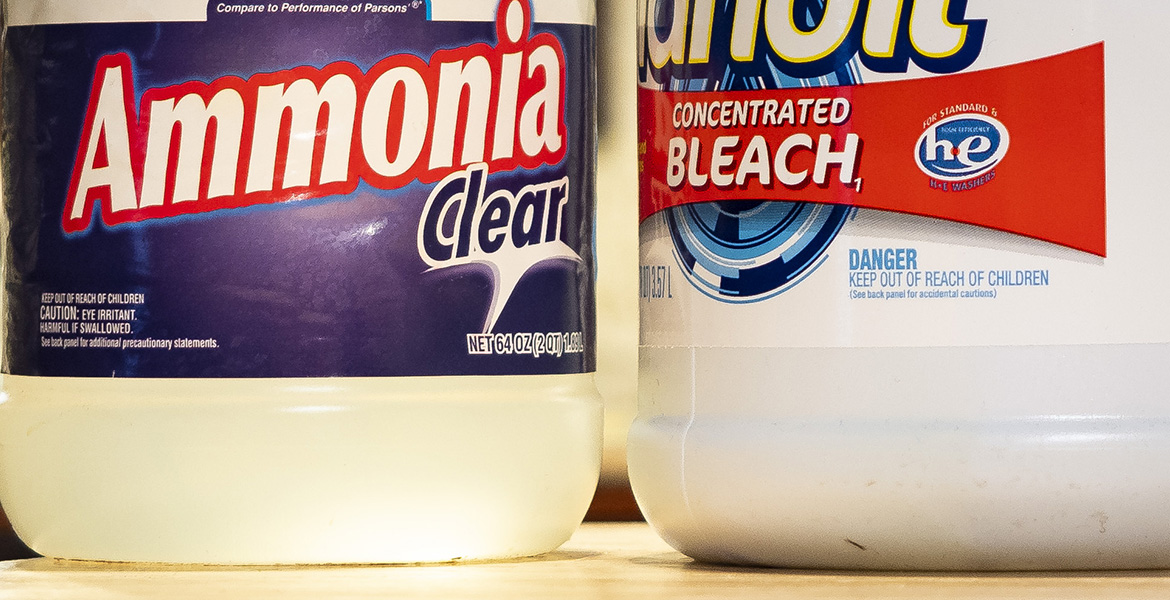
Chemical exposure risks rising in pandemic
Tuesday, May 12, 2020
Clean, disinfect, sanitize, repeat. This has become the mantra of households across the country in an effort to keep the novel coronavirus at bay.
With the increased use of cleaning supplies, disinfectants and other chemicals, including pesticides, the Centers for Disease Control and Prevention is reporting an increased number of calls to poison control centers regarding chemical exposure, said Gina Peek, Oklahoma State University Extension housing and consumer specialist.
“Obviously, it’s very important to wipe down and sanitize frequently touched surfaces in your home,” Peek said. “However, it’s vital for consumers to use these cleaning products properly. Not only must people use them correctly, they also must store these chemicals properly in their homes.”
Peek suggested posting the toll-free poison control center phone number, 800-222-1222, by every home’s landline phone and on each smartphone.
The first case of COVID-19 was reported in the state of Washington in January, and since that time, households across the country have been paying greater attention to cleaning and disinfecting surfaces.
“Since the beginning of March, exposures to both cleaners and disinfectants has increased significantly as we obviously are using more of these products,” said Kevin Shelton, coordinator of OSU’s Pesticide Safety Education Program. “Data from 55 poison control centers across the country showed they received more than 45,000 exposure calls related to cleaners and disinfectants from January through March 2020, compared to 37,800 calls in the same time frame in 2019.”
Although the National Poison Data System does not provide information that shows definite causation between dangerous chemical exposures and COVID-19 cleaning efforts, there appears to be a clear correlation, he said.
Peek said the increased number of calls was seen across all age groups; however, exposures among children age 5 and younger consistently represented a large percentage of the calls.
This is why the proper use and storage of house chemicals is so important, she said.
“Sometimes people get a little overzealous when it comes to cleaning and think if one product is good, mixing a couple of them together will be even better,” Peek said. “This is not the case and it can be extremely dangerous to mix together certain products.”
For example, bleach and vinegar should never be mixed because it causes toxic chlorine gas. Likewise, the combination of ammonia and bleach creates toxic chloramine vapors. The fumes can be extremely dangerous or even deadly, she said. Reading the label on all cleaners and disinfectants is vital, and cleaning areas should be well ventilated.
Shelton said proper storage of all household chemicals, disinfects, pesticides and other chemicals is essential as well.
“While it may be convenient to store cleaners under the kitchen sink or bathroom sink, they should be stored in cabinets that are out of reach of small children in the home,” he said. “The same is true for chemicals stored in the garage. Keep them locked in a cabinet or on a high shelf. Also, when using these products, make sure you protect yourself by wearing proper personal protective equipment.”
MEDIA CONTACT: Trisha Gedon | Agricultural Communications Services | 405-744-3625 | trisha.gedon@okstate.edu
